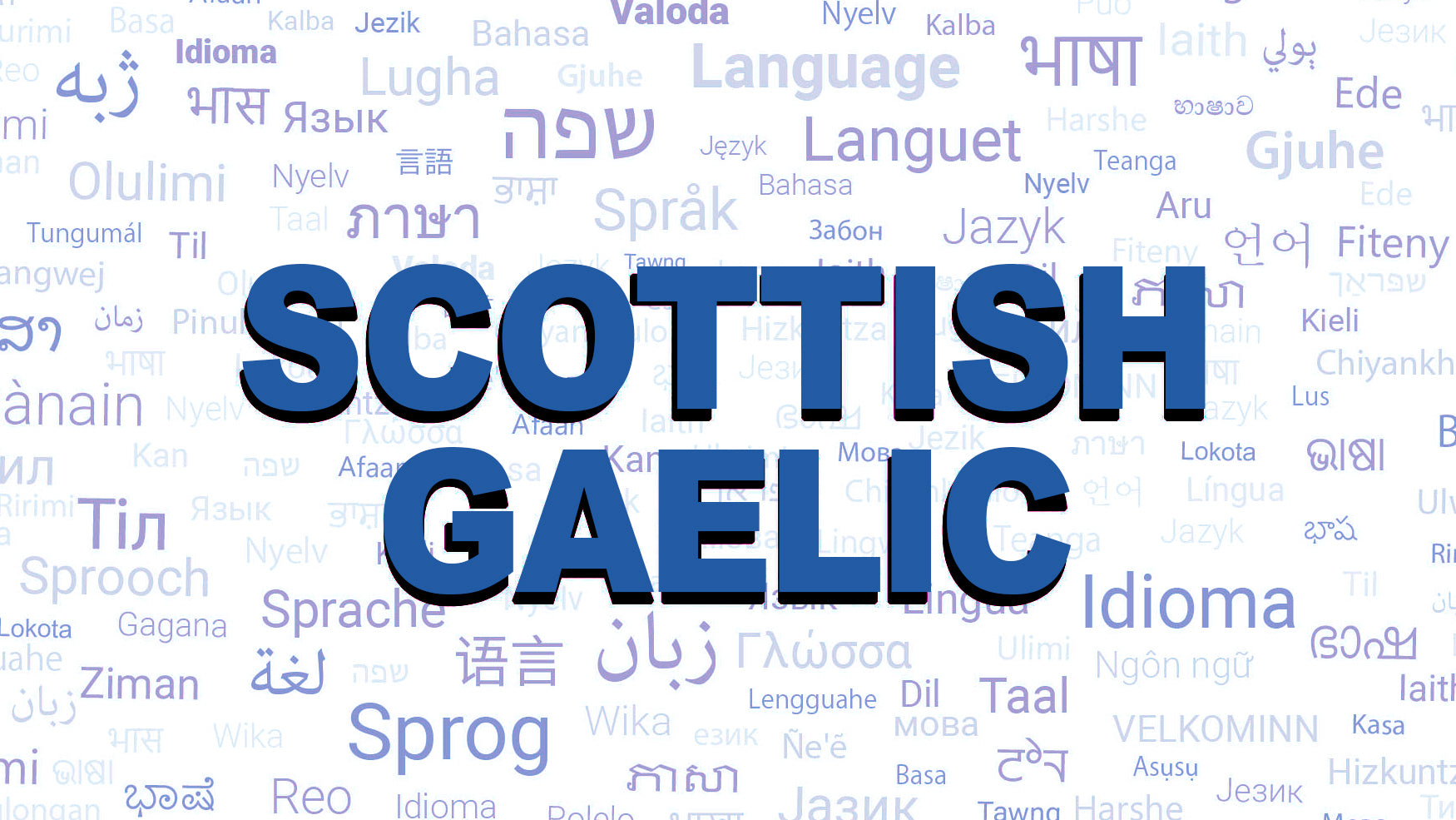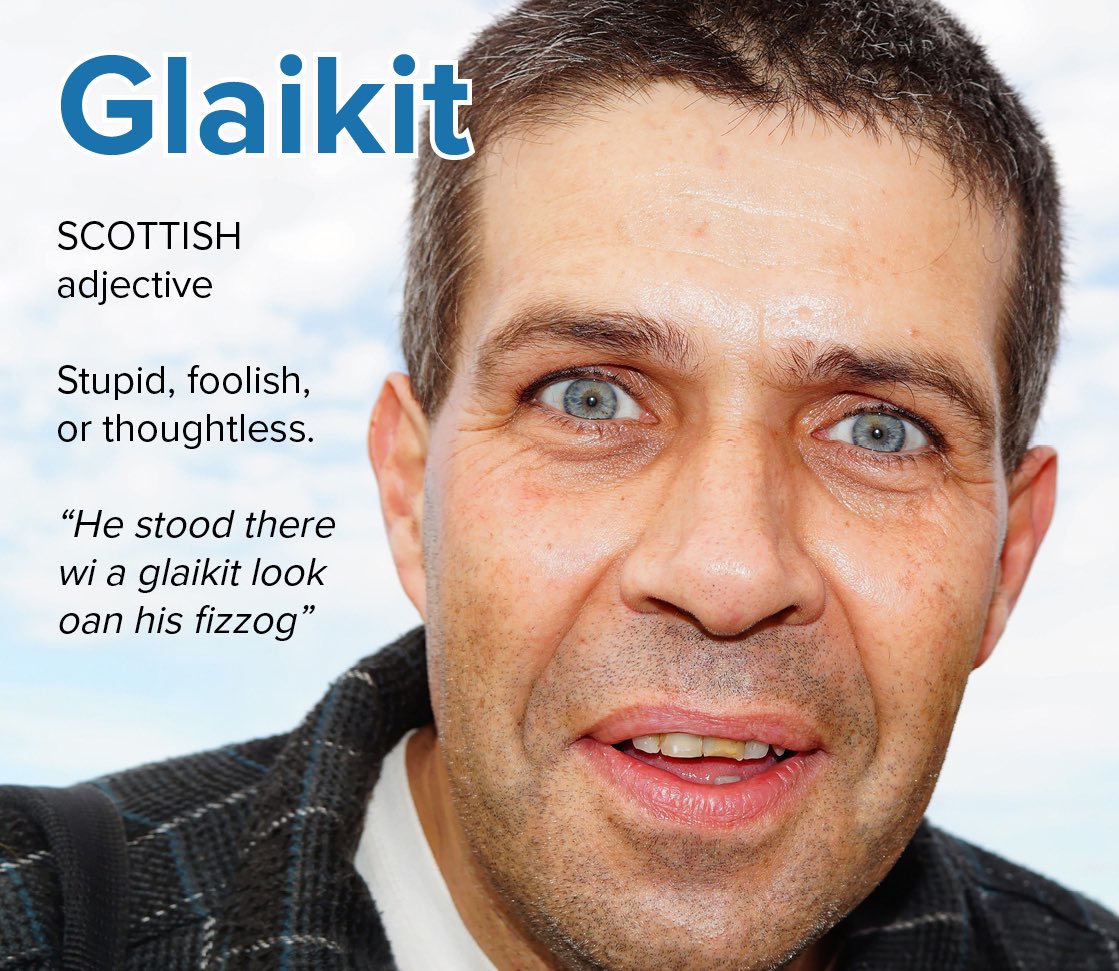Famous Scottish Slang Words You Need to Know to Speak Like a True Scot 🏴
by Teejay Smith on Apr 14, 2025
Table of Content
1. Introduction
Have you ever heard someone in Scotland call a kid a “bairn” or ask you “D’ye ken?” (That’s Scots for “Do you know?”) and found yourself completely lost? If so, welcome to the wonderfully quirky world of Scottish slang!
Every phrase, every odd little word carries a story. It’s a mix of history, humor, and cultural pride all rolled into one. From Anglo-Saxon roots to Gaelic whispers and a sprinkle of Norse and French influence, Scottish slang has been shaped over the centuries.
Have you ever heard of “Scotticism”? It’s a word or phrase that’s uniquely Scottish—something you won’t hear the same way anywhere else in the UK. Once you spot them, you’ll find Scotticisms everywhere.
2. Overview of Scottish Slang

Scottish slang isn’t just a handful of weird words. It’s an epic mix of languages and cultures mashed together over 700+ years.
When the Vikings showed up in Scotland centuries ago, they left behind more than battles—they brought language. Words like “ken” (know), “bairn” (child), and “gate” (path or way) are all Norse leftovers. Later on, Scotland’s close friendship with France—what they called the “Auld Alliance”—added a classy touch with words like “ashet” (a serving plate) and “dour” (stubborn).
And don’t forget Gaelic—the lyrical, ancient tongue of the highlands. That’s where you get “bonnie” (pretty), “caily” (play or chatter), and other poetic gems. Even trade with Flemish merchants gave us words like “golf” and “freight”.
All these layers transformed Scottish slang into a rich, colorful language that feels like a secret handshake in Scottish life. It’s funny, sharp, and often full of attitude—in the best way possible.
2.1 Common Scottish Slang Words
These words appear in everyday conversations across Scotland. Here’s your starter pack for sounding like a local.
#1: Hen
"Hen" is an endearing term used to refer to a young lady. It’s one of the most commonly heard phrases in Scottish slang.
#2: Wean
Commonly used in Glasgow, “wean” (short for "wee one") means child—just like “bairn” does in Edinburgh. It’s all about where you are!
#3: Loon
In the north-east (like Aberdeenshire), “loon” replaces “boy.” You’ll hear “loon” and “quine” instead of “boy” and “girl.”

#4: Messages
In Scotland, "messages" refers to grocery shopping. For example, "I’m off to get the messages" means heading out to pick up groceries.
#5: Bampot
A fun slang word used to describe someone as foolish or acting silly.
#6: Ken
"Ken" means "know" or "you know?" Often used at the end of sentences, for example, "This weather is great for a walk, ken?" In some areas, you might even hear people add "like" after "ken" for extra flair.
#7: Hoachin’
"Hoachin’" means "very busy". Whether you’re studying, sightseeing, or experiencing the local culture, your time in Scotland will surely be hoachin’.
#8: Crabbit
"Crabbit" describes someone grumpy or in a bad mood – perfect for those off days!
#9: Tassie
"Tassie" refers to a cup. Whether you're enjoying a tassie of tea or Scotch whisky, you'll encounter this word during your time in Scotland.
#10: Gutties
This word is used for shoes or sneakers. Make sure to pack your gutties when you explore the charming streets of Edinburgh or visit Glasgow’s world-class museums.
#11: Bonnie
An old Scottish term meaning "beautiful". It’s often used to describe someone or something visually appealing.
2.2 Common Scottish Slang Phrases

#1: “Ah dinnae ken”
This phrase simply means, “I don’t know.” It's one of the most commonly used Scottish slang expressions when someone is unsure.
#2: “It’ll be a skoosh”
This phrase translates to, “Don’t worry” or “This will be easy.” It’s a reassuring way to calm any nerves.
#3: “Ma heid’s mince”
When you say this, you’re admitting, “I’m really confused” or “My head’s a mess.” If used about someone else, “Yer heid’s full o’ mince” means they’re not making much sense.
#4: “Am pure done in”
This expression means, “I’m very tired.” After a long day of exploring, this is a great phrase to express your exhaustion.
#5: “Pure dead brilliant”
When these words are combined in Scottish slang, they describe something extraordinary or amazing. You might say, “Seeing the Glasgow ocean rainbow coast was pure dead brilliant.”
#6: “Gonnae no’ dae that”
This translates to, “Don’t do that!” It’s a straightforward plea to stop an action.
#7: “Yer lookin’ a bit peely wally”
This phrase means, “You look pale or ill.” While it’s a fun phrase to say, the meaning itself is not as pleasant.
#8: “Whit’s fur ye’ll no go by ye”
A comforting phrase that means, “What will be, will be.” It reflects a belief in destiny or fate.
#9: “Haud yer wheesht”
This is a more forceful way to say, “Be quiet” or “Shut up!” It’s not the politest way to ask for silence, but it gets the point across.
#10: “Haste ye back”
A phrase meaning farewell or “return soon.” It’s a warm and friendly way to say goodbye, often heard at the end of a program or visit from your new Scottish friends.
#11: Blether
"Blether" means to chat or gossip, often in a friendly, rambling way. “Let’s have a wee blether over tea”, you might hear.
#12: Braw
“Braw” means excellent or high quality. A sunny day in the Highlands? “It’s a braw one!”
#13: Gallus
A “gallus” person is cheeky, bold, and confident—in a way that’s more admired than annoying. “He’s a wee bit gallus, that lad”.
#14: Wee
A true Scottish staple. “Wee” means “small” or “little”, but it's used everywhere. “A wee dram,” “a wee lass,” “a wee break.” It adds instant charm to just about anything.
3. Everyday Scottish Slang
3.1 Scottish Goodbyes and Hellos
In Scotland, farewells are more than quick goodbyes—they're warm, often drawn-out exchanges full of genuine cheer. Whether you're leaving a friend at the pub or saying goodbye at the train station, parting words usually come with a smile and sometimes a joke.

Popular Scottish farewell phrases include:
"Cheerio!" – A friendly, casual goodbye.
"Lang may yer lum reek!" – A classic wish for a long and healthy life.
"See you, Jimmy!" – A cheeky and often humorous way to say farewell.
Greetings are just as expressive. Phrases like:
"How are ye?" – Works as both a greeting and a genuine check-in
"Awright mate!" – A casual, warm hello, often said with a grin
These Scottish greetings and goodbyes reflect the heart of a culture built on friendliness and fun.
3.2 Polite Scottish Expressions
Politeness runs deep in Scottish culture—and it’s beautifully evident in their daily speech. You’ll often hear people say:
"If you please" or "Thank you kindly"
Formal terms like "Sir" or "Madam"
And the ever-present: "Are you alright there?" — a standard check-in, often said to strangers with genuine care.
3.3 Beautiful Scottish Words
Even after a wee dram or two, Scots' way of speaking remains effortlessly charming. There's a kind of poetic elegance woven into their everyday words—they feel like they belong in love letters, folk songs, or whispered on a misty Highland morning.
- Coorie – To cuddle or nestle in, especially in cold weather. Similar to the Welsh term 'cwtch.'
Smourich – A soft kiss
Crouss – Joyfully confident or cheerful
Flichterin' – Soft fluttering, like the wings of a butterfly or the flame of a candle.
Gloaming – Twilight or dusk.
Solasta – Luminous or shining.
Saorsa – Freedom, liberty.
Turadh – A break in the clouds between showers.
Fearthainn – Rain.
Monadh – A mountain covered in moorland.
Blate – This gentle word means “shy” or “bashful.” You might hear it when someone’s quietly reserved in a friendly group.
3.4 Hogmanay Greetings and Scottish New Year's Sayings

Hogmanay marks Scotland’s iconic New Year's Eve celebrations with time-honored rituals. These features include unique phrases like the traditional Hogmanay greeting “A guid New Year to ane an` a`” wishing all a good year ahead, or the “First-footing” practice of a tall, dark-haired man entering the house after midnight symbolizing good fortune.
Calling out “Lang may yer lum reek!” is another customary New Year's toast wishing the house’s chimney long-lasting smoke, i.e., longevity. Such sayings form quintessential Hogmanay lingo still in use annually.
Brave enough for a dook? That’s a Scottish dip—especially in icy waters like the “Loony Dook” on New Year’s Day. Definitely not for the faint-hearted!
3.5 Casual Conversational Phrases
Everyday Scottish conversation is peppered with friendly, quirky, and often hilarious expressions that add color and charm to interactions. Some common conversational tools:
"Ken?" – Means "you know?" and appears often at the end of sentences.
"Eh?" / "Is it no?" – Invite agreement or clarification.
"Pure" and "Right" – Used for emphasis, like “pure brilliant” or “right busy”.
And here are some unique Scottish words used in casual speech:
"Piece" – A sandwich or small meal.
"Messages" – Groceries.
"Messages bit" – Spare coins for shopping.
Scots also show their famously friendly nature through phrases like:
"Oops, sorry there!" – Said even when the other person bumps into you.
And if something’s wobbling ever so slightly, you might hear someone say it’s having a wee shoogle—whether it’s a rickety chair or your nerves on a rollercoaster.
4. Colorful Scottish Insults and Playful Teasing
4.1 Scottish Insults and Swear Words (Witty & Wicked)
Scots are masters at turning everyday language into cheeky jabs. From harmless mockery to borderline vulgarity, there’s an art to it.
Bawbag – Crude term for scrotum, often used humorously.
Fud – A vulgar insult, not one for polite company!
Numpty – A foolish person, but in an oddly affectionate way.
Roaster – An arrogant show-off or someone behaving foolishly.
Donkey’s lips – Teasing someone with large lips.

- Dafty – A silly person
Nugget – A foolish fool
Jobby – Poo 💩 (used playfully)
Boggin, Bowfin – Gross, foul-smelling
Hackit – Ugly
Scabby, Naff – Dirty, boring
Bahookie – A playful term for your bum.
Glaikit – A wonderfully biting word for someone acting thoughtless or daft. “Don’t be so glaikit!”
💬 These terms reflect Scotland’s bold humor—sharp, clever, and always memorable.
4.2 Light-Hearted Scottish Insults

Insulting friends in Scotland is practically a love language. It’s about teasing, not tearing down.
Yer face could stop a clock – You’re no oil painting.
Yer heid’s full o’ mince – Your brain’s all scrambled.
Yer bum’s oot the windae – You’re talking nonsense!
🔥 Quick-fire Friendly Slang:
Eejit – Idiot
Feartie – Coward
Gommy – Silly fool
Gowk – Clumsy or slow
Lavvy heid – "Toilet head"—a jokey brain jab
Nyaff – Annoying little guy
Rocket – Loud and foolish
🧠 Scots know how to roast without burning.
And when you're cheering someone on at a ceilidh or karaoke night? Just shout “Gie it laldy!” — which means “Go all in, give it everything!” It's pure encouragement, Scottish-style.
4.3 Scottish Curse Words That Cross the Line
Some Scottish insults go beyond friendly teasing—they’re rooted in deeper social divides like class, religion, or ethnicity. While still heard in parts of daily speech, many are now considered offensive and outdated.
⚠️These terms are no longer acceptable in polite conversation and may be seen as racist, sexist, or discriminatory.
As Scotland grows more inclusive, understanding the context of these expressions helps highlight why respectful language matters. For that reason, we won’t repeat them here—only note that awareness is key to preserving humor without harm.
4.4 Swear vs. Curse vs. Insult: What’s the Real Difference?
In Scottish slang, not all sharp-tongued phrases are equal. Some are meant to curse, some to tease, and some… just to let off steam. Here's how to tell the difference—and when to use them.
Type |
Purpose |
Common Words/Phrases |
Tone |
Swear Words |
Shock value, emphasis, frustration |
Bawbag, fud, jobby, boggin, bowfin, hackit |
Crude, bold, humorous |
Curse Words |
Express emotion or condemnation |
Away an' bile yer heid, Get tae..., Yer bum’s oot the windae |
Dramatic, idiomatic |
Insults |
Tease, mock, or roast someone |
Eejit, glaikit, numpty, rocket, bahookie, scabby |
Often playful or biting |
5. Funny Scottish Slang and Sayings
Scotland’s sense of humor is legendary—sharp, dry, and often wonderfully absurd. From toasts that warm the heart to cheeky sayings that’ll leave you grinning, these expressions prove that Scots know how to laugh through life.
5.1 Scots Gaelic Cheers

There’s no better way to toast in Scotland than in Scots Gaelic. This ancient Celtic language still echoes in Highland gatherings and pubs alike.
Here are a few classic Scottish toasts:
Slàinte mhath! – Good health!
Slàinte mhòr! – Great health!
Slàinte is deoch-slàinte! – Health and a drinking-health!
These toasts are more than just words—they're part of a tradition where every drink is a celebration, and every celebration comes with a bit of poetry. So, the next time you're raising a glass in Scotland, try one of these phrases. You’ll fit right in—and maybe even get a knowing nod from the locals.
5.2 Funny Scottish Sayings

Scottish idioms are packed with charm, wit, and a healthy dose of dry humor. They’re equal parts philosophy and punchline. Take these classics:
"Lang may yer lum reek!" – Literally, “long may your chimney smoke,” meaning may you live long and well.
"It’s better felt than telt." – A delightfully understated way of saying some things are best experienced, not explained.
These sayings might sound strange at first, but their clever simplicity holds timeless wisdom, with a wink, of course.
5.3 Comically Scottish Sayings

Sometimes, the funniest language comes from everyday life. Scots have a talent for turning the mundane into magic with quirky turns of phrase.
Some favorites:
"Schemie" – Someone from a housing scheme, often used playfully.
"Glesga" – Local slang for Glasgow.
"Haw mate, huv ye goat twinty pee, fur the messages bit?" – A hilariously long-winded way to ask for 20 pence toward groceries.
These clever mashups of local slang and rhythm make ordinary moments sound like scenes from a sitcom. That’s what makes Scottish phrases funny and Scottish humor expressions so endlessly entertaining.
6. Famous Scottish Quotes
Scotland isn’t just a land of lochs and legends—it’s a place where language has long been used to stir hearts, spark laughter, and share life’s most profound truths. From poetic idioms to sharp-witted proverbs, Scottish sayings have a timeless way of capturing the human experience.
6.1 Exploring Popular Scottish Idioms

Some of the most enduring Scottish quotes come from the pens of its literary legends. Whether pondering life, ambition, or imagination, these lines still resonate centuries later.
"The best-laid schemes o’ mice and men gang aft agley."
— Robert Burns
(Even the most careful plans can go wrong.)"To travel hopefully is better than to arrive."
— Robert Louis Stevenson
(The journey matters more than the destination.)"Nothing is more creative... than play."
— Charles Rennie Mackintosh
(Creativity is rooted in curiosity and fun.)
These famous Scottish idioms speak volumes with just a few words, blending poetic depth with real-life insight.
6.2 Proverbs That Pack a Punch
Scottish proverbs often come with a dose of wisdom—and a healthy splash of cheeky humor. Passed down through generations, they’re short, sharp, and often surprisingly profound.
"What canna be cured, maun be endured."
(If it can't be fixed, you have to live with it.)"Ye cannae shove yer grannie aff a bus!"
(Don’t mess with your elders—or your manners!)"Laugh an’ the warld laughs wi’ ye; greet an’ ye greet alane."
(Positivity brings people together. Negativity? Not so much.)
These Scottish proverbs mix humor with hard truth, and they stick with you long after you’ve heard them.
6.3 Quotes Reflecting Scotland’s Heart

Not all great Scottish sayings come from literature. Politicians, artists, and thinkers have all added to Scotland’s rich quote collection—each revealing a different side of the country’s soul.
"I shall return."
— Ramsay MacDonald, first Labour Prime Minister
(A promise of perseverance and pride.)"In Scotland, one can realise aesthetic adventure."
— Richard Demarco, artist and cultural advocate
(Celebrating the beauty and boldness of Scottish art.)"There’s a wideness in God’s mercy."
— Frederick Faber, poet and theologian
(A line that’s become part of Glasgow’s spiritual identity.)He’s got paralysis of the galluses – A funny way to say someone’s lazy. “He cannae lift a finger—must be paralysis of the galluses!”
From politics to poetry, these quotes carry the passion, artistry, and faith that shape Scottish identity.
6.4 Local Slang Sayings with Big Personality

Scotland’s daily banter is full of colorful expressions—some ancient, some born from pop culture. They're cheeky, vivid, and often hilarious. Here are a few fan favorites you might hear out and about:
"Yer lookin’ a bit peely wally" – Signifying that someone appears pale or unwell.
"That’s gee-in me the boak" – A vivid and slightly gross Scottish expression used when something induces a feeling of sickness.
"Gonny no dae that" – A plea: "Please don’t do that!"
"She’s up tae high doh" – Describing a state of being flustered and agitated. The term's origin lies in the musical context, with 'doh' representing the highest note on the scale.
"Hairy Coo" – Literally "hairy cow," a nickname for Highland cattle.
"I’ll gie ye a skelpit lug" – A cheeky way to warn someone of a slap on the ear.
"Skinny Malinky Longlegs" – A playful rhyme to tease someone tall and thin.
Keek – A quick peek or glance. “Goan take a keek oot the windae.”
Oxter – Your armpit. “He had his paper stuck under his oxter”. Classic Scots body language!
💡 Fan favorites like “Whit’s fur ye’ll no go by ye” and “Haud yer wheesht” already appeared above.
6.5 Slang for Getting Drunk

Scots have no shortage of ways to say someone’s had too much to drink. Here are just a few colorful expressions:
Blootered – Completely wasted
Steamin’ – Very drunk
Mad wae it – Wildly drunk
Oot yer tree – Totally out of control
Hammered, Wrecked, Smashed – You get the idea!
6.6 Scottish Rhyming Slang: Say It Like a Local

Do you think rhyming slang is just for Londoners? Think again! Scotland's version is based more on pronunciation than spelling.
Andy Murray = Curry
Mick Jagger = Lager
Lorraine Kelly = Telly
Alan Rough = Guff or “Up the duff” (pregnant)
Gordon Strachan = Cracking (as in “That’s pure Strachan!”)
👉 “Fancy an Andy Murray tonight?” doesn’t mean watching tennis—it means grabbing a curry!
It’s cheeky, fast, and full of character—just like the Scots themselves.
7. Wrapping It Up: More Than Just Words
Scotland’s distinctive dialect offers so much more than a quirky way of speaking. From poetic expressions to outrageous insults, the country’s vernacular reflects its rich history, dry wit, and deep cultural pride.
Whether you're laughing over a cheeky insult or moved by a timeless proverb, these Scots expressions give you a way to connect with the people and soul of Scotland. They’re more than colorful phrases—they’re tiny cultural artifacts that tell stories, stir emotions, and bring people together.
So next time you hear someone say, “Lang may yer lum reek”, you won’t just understand the words—you’ll feel the warm spirit behind them. And who knows? You might even find yourself sprinkling a few of these gems into your speech!
Frequently Asked Questions
What do Scottish people say in slang?
We also commonly say aye instead of yes, wee instead of small, ken instead of know and uch instead of oh. Aye, it's getting a wee bit harder noo. Then you've got words like caiket and mocket, both meaning dirty, and hacket, meaning ugly.
Are Scottish insults always offensive?
Explore the nuanced use of Scottish insults, recognizing when they are light-hearted banter and when caution is warranted.
Do Scots still say Ken?
Ken. Pronounced as written. Although it technically means 'know', some Scots will use it to punctuate their sentences till the point where it feels like it has lost all meaning. Often used in conjunction with 'ye' meaning 'you' and 'fit' which means 'what'.
Can I use Scottish slang in casual conversations?
Learn how to incorporate casual Scottish phrases into everyday conversations, adding authenticity to your interactions.
What is silly in Scottish slang?
Daft is another humorous word meaning silly, foolish, or senseless. You might use it in a lighthearted way, such as Dinnae be daft—of course you're coming to the party! or to tease someone, as in What a daft idea! This adds a touch of affection and humor, making it a well-used part of everyday Scottish conversation.










